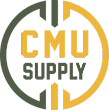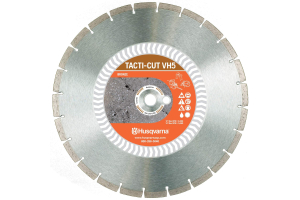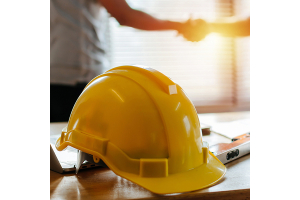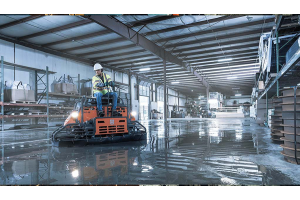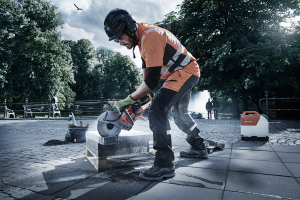The Ultimate Guide to Compaction Equipment
Choosing the Right Compaction Equipment for the Job
Whether you're compacting granular base for pavers, prepping for a concrete slab, or backfilling around a foundation, the right compaction equipment is key to long-term jobsite performance.
At CMU Supply, we stock contractor-grade plate compactors, tamping rammers, and rollers from top brands like Husqvarna, Multiquip, and Wacker Neuson — and this guide will help you pick the right tool for your soil type, jobsite, and crew.
Why Choosing the Right Compaction Tool Matters
Proper compaction increases soil density, load-bearing strength, and long-term durability. Without it, you're inviting future settlement, cracking, or water damage.
Common applications:
- Driveway and sidewalk prep
- Asphalt repair
- Backfilling around foundations
- Trench work
- Landscaping and hardscaping
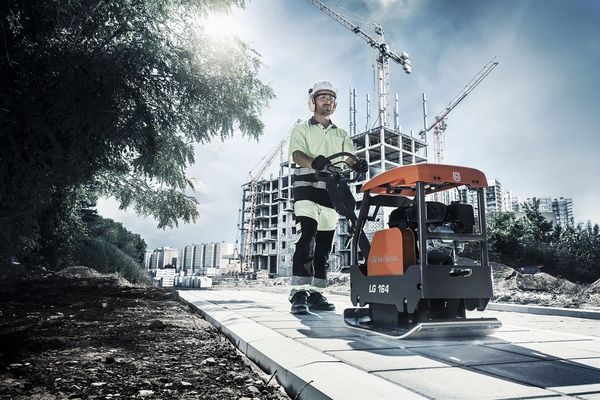

A Contractor’s Guide to Choosing the Right Compaction Equipment
First, Know Your Material
| Material | Best Tool | Why |
|---|---|---|
| Clay / Cohesive Soil | Tamping Rammer | Delivers impact force to break up sticky, moisture-heavy material |
| Sand / Gravel / Granular Fill | Vibratory Plate Compactor | Needs vibration, not impact — over-compacting reduces strength |
| Asphalt | Forward Plate or Roller | Requires a water system and smooth finish |
| Backfill in Trenches | Rammer or Reversible Plate | Needs deep, concentrated compaction in a tight area |
| Large Open Areas | Reversible Plate or Roller | Wide coverage and consistent compaction pass to pass |
Second, Know Your Equipment
Plate Compactors
Best For: Asphalt, granular soil, hardscaping bases
- Forward Plate Compactors are lighter, easier to maneuver, and ideal for driveways, paver bases, or patch jobs.
- Reversible Plate Compactors are heavier-duty. They travel in both directions and are better for deep compaction or compacting in trenches and over larger areas.
Top Picks:
- Husqvarna LF 80 LAT – Smooth asphalt performance, optimized water kit, great for patching or small lots.
- Multiquip MVH308GH – Reversible powerhouse with over 33kN of force. Excellent for road base and trench backfill.
- Weber CR 2 Hd – Solid middleweight for landscaping crews who want maneuverability and solid force.
Tamping Rammers
Best For: Cohesive soils like clay and silt, trench work, backfill around foundations
- Rammers use a direct impact pounding motion — not vibration — to compact sticky soils that plates can’t handle.
- Go-to tool for utility contractors, foundation crews, and anyone compacting tight zones with high moisture.
Top Picks:
- Wacker Neuson BS60-4As – Lightweight but hits hard; great all-around rammer for trench and utility work.
- Multiquip MTX70HD – A bit heavier, delivers more stroke and higher impact for deep compaction.
Compaction Rollers
Best For: Large areas, asphalt, base layers under slabs or roads
- Double-drum rollers give the most even compaction across broad surfaces.
- Good for commercial paving, parking lots, and soil prep before pouring large pads.
Top Picks:
- Husqvarna LP 6505 – Smooth drum, vibration on both drums, built-in water system — clean results on asphalt.
- Multiquip RX1575 – Heavier compaction, better for base layers before large concrete pours or structural pads.
What to Look for When Choosing a Compactor
| Feature | Why It Matters |
|---|---|
| Compaction Force | Higher force means deeper compaction in fewer passes — better for road base, but not always ideal for delicate surfaces. |
| Plate/Drum Size | Impacts how wide your compaction path is. Match to the size of your work area. |
| Operating Weight | Heavier = more force, but harder to maneuver on tight or sloped terrain. |
| Water Tank | Essential for asphalt to prevent sticking. |
| Forward vs. Reversible Travel | Reversible plates save time on larger or trench-based jobs. |
| Transportability | Know whether it fits in a pickup bed or needs trailer transport. |
Contractors who frequently work with granular or cohesive soils will benefit long-term from owning the right compactor outright — both in job quality and crew productivity.
Compaction Equipment Comparison Chart
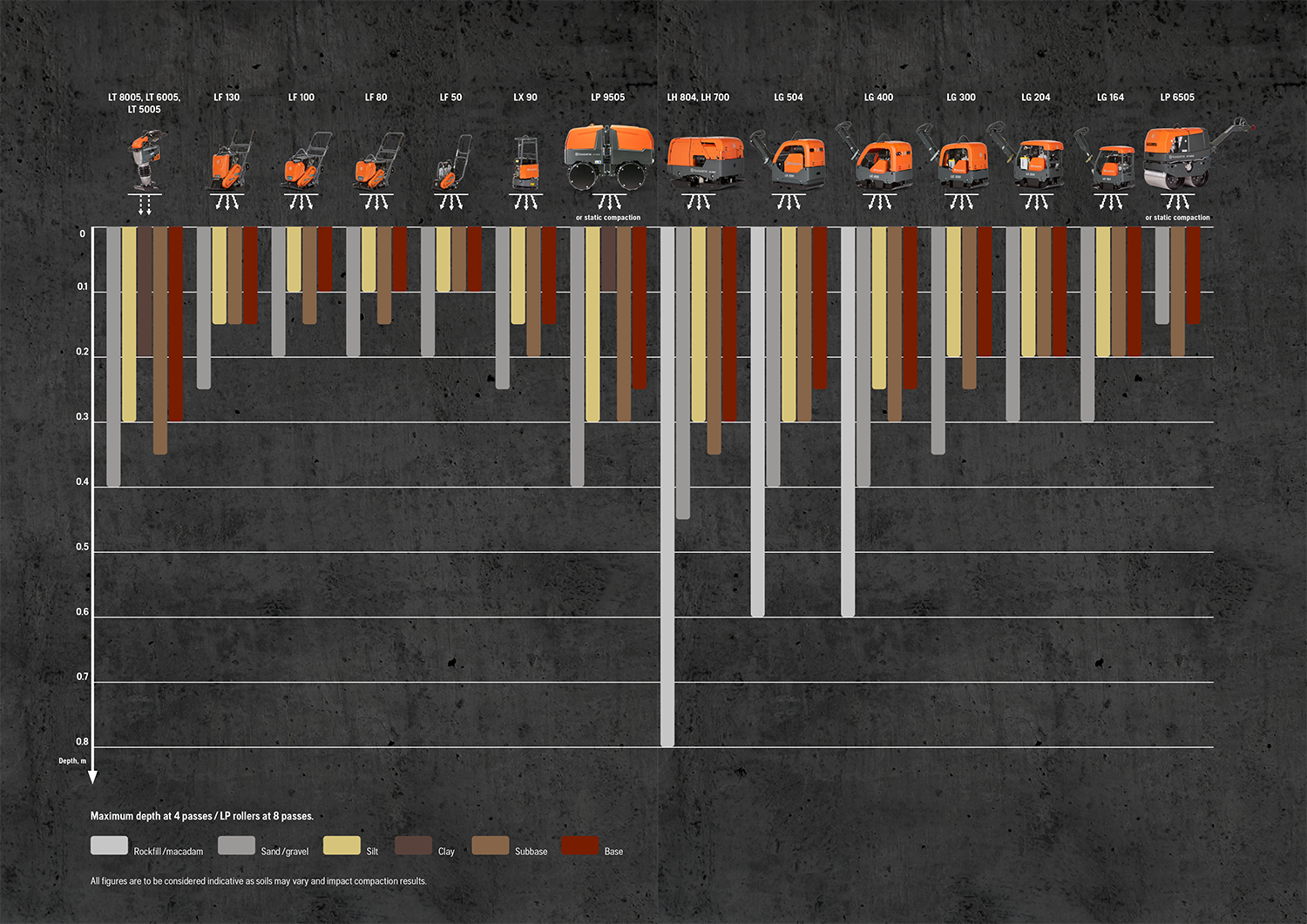

Plate Compactors
| Model | Type | Engine | Centrifugal Force | Plate Size | Applications |
|---|---|---|---|---|---|
| Husqvarna LF 80 LAT | Forward | Honda GX160 | 16 kN | 500 x 345 mm | Asphalt, granular soil |
| Multiquip MVH308GH | Reversible | Honda GX270 | 33.8 kN | 600 x 480 mm | Gravel, sand, road base |
| Weber CR 2 Hd | Reversible | Honda GX160 | 25 kN | 450 x 450 mm | Landscaping, small road jobs |
Tamping Rammers
| Model | Stroke Height | Impact Force | Weight | Engine | Best For |
|---|---|---|---|---|---|
| Wacker Neuson BS60-4As | 2.8 in | 3,375 lb | 145 lb | Honda GXR120 | Clay, trench work |
| Multiquip MTX70HD | 3.5 in | 3,350 lb | 165 lb | Honda GXR120 | Confined areas |
Compaction Rollers
| Model | Drum Width | Frequency | Water System | Surface Type |
|---|---|---|---|---|
| Husqvarna LP 6505 | 650 mm | 55 Hz | Yes | Asphalt, soil |
| Multiquip RX1575 | 650 mm | 60 Hz | Yes | Trench, asphalt |
Application Guide
| Material | Best Equipment | Notes |
|---|---|---|
| Clay | Tamping Rammer | Requires impact force and moisture control |
| Silt | Tamping Rammer | High energy compaction needed |
| Sand/Gravel | Plate Compactor | Use vibratory force; avoid over-compaction |
| Asphalt | Plate Compactor/Roller | Use water system and non-stick plate |
| Rockfill | Heavy Reversible Plate | High-energy force required for stability |
Pro Tips for Better Compaction
- Compact in layers — never try to do it all in one pass
- Don’t over-compact granular soils — you’ll reduce bearing strength
- Always match tool to soil type
- Use water kits for asphalt to reduce sticking
- Know your space and job size before choosing a reversible or roller
The best compactor isn’t just about price — it’s about matching tool to task. At CMU Supply, we stock contractor-grade equipment from top brands and help you find what’s right for your material, site conditions, and job size.
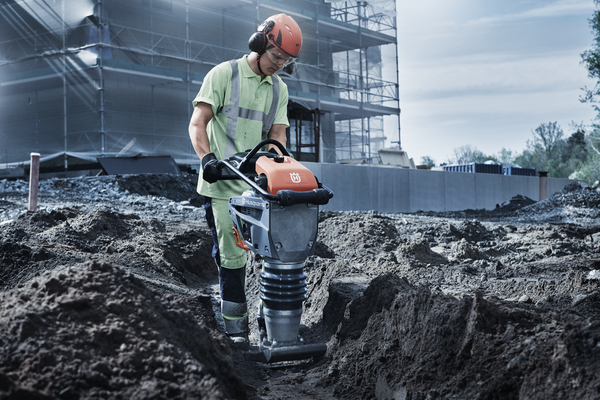

Ready to find your compactor?
Reach out to our team — we’re happy to match you with the best equipment for your soil, application, and budget.
